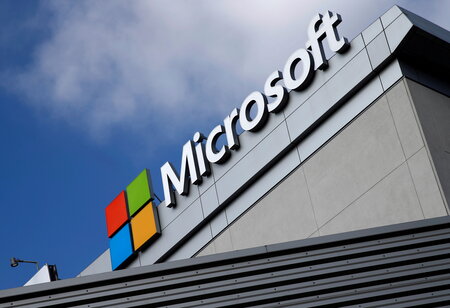Microsoft Reports Impressive Q2 Growth Fueled by AI and Cloud Demand
By Consultants Review Team
 Microsoft Corporation has recorded its most robust revenue growth since 2022, propelled by increased interest in innovative artificial intelligence (AI) products, consequently driving a resurgence in spending on cloud computing. The second-quarter revenue, concluding on December 31, surged by 18% to reach $62 billion, with a profit of $2.93 per share, as stated in a Tuesday release by Microsoft. Analysts surveyed by Bloomberg had an average estimate of $2.78 per share earnings on sales of $61.1 billion.
Microsoft Corporation has recorded its most robust revenue growth since 2022, propelled by increased interest in innovative artificial intelligence (AI) products, consequently driving a resurgence in spending on cloud computing. The second-quarter revenue, concluding on December 31, surged by 18% to reach $62 billion, with a profit of $2.93 per share, as stated in a Tuesday release by Microsoft. Analysts surveyed by Bloomberg had an average estimate of $2.78 per share earnings on sales of $61.1 billion.
Notably, Azure cloud-services sales experienced a notable 30% growth, surpassing the 29% growth in the preceding quarter and surpassing the 28% growth projected by analysts. During an analyst call, Microsoft assured that the growth in the Azure division would "remain stable" in the current quarter.
Investors have displayed confidence in Microsoft's trajectory, anticipating CEO Satya Nadella's transformation of the company into an AI powerhouse through collaboration with startup OpenAI. This optimism has propelled Microsoft's market capitalization beyond $3 trillion, surpassing Apple Inc. as the world's most valuable company.
Efforts to integrate AI into flagship products such as Azure, Office, and Windows are showing signs of success. However, despite delivering positive results, Microsoft's shares experienced a brief dip in late trading, recovering some losses afterward.
According to Chief Financial Officer Amy Hood, AI contributed to a six-percentage-point increase in Azure's growth rate. Moving forward, the growing interest in AI products is expected to drive customers to enhance their utilization of fundamental services like storage and computing power.
The quarter also saw Microsoft's commercial cloud product revenue rise by 24% to $33.7 billion. The company released the corporate version of its Microsoft 365 Copilot, an AI assistant for Office programs, which garnered attention from large customers. Xbox content and services revenue rose by 61%, including the first quarterly results following the acquisition of Activision Blizzard Inc. in October.
Microsoft's investment of $13 billion in OpenAI positions it at the forefront of developing applications enabling customers to generate content from their data and web-scraped information. While the management shake-up at OpenAI briefly drew attention in November, analysts believe it had minimal impact on Microsoft's AI revenue. However, investors eagerly await concrete data and forecasts from Microsoft on the anticipated meaningful contribution of AI to the company's bottom line.




